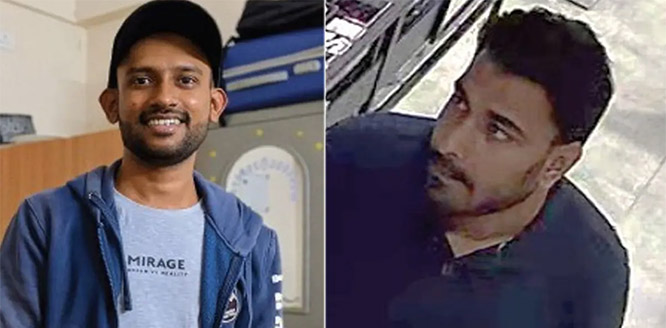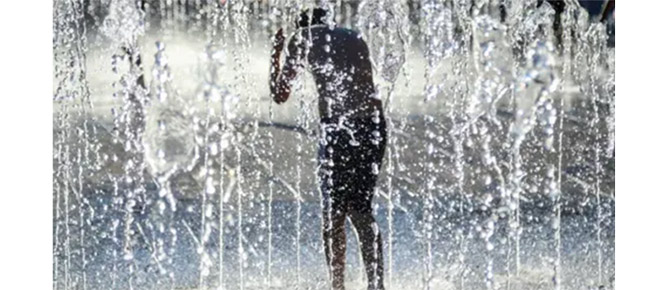Citizenship Amendment Bill, while passed in both houses of Parliament has elicited diverse and negative responses all over India. On one hand we see massive protests in North East leading to death of four people. On the other there is a sever discomfort among those upholding Indian Constitution and among the Muslim community all over the country. This Bill in its present form gives the rights of citizenship to Hindus, Sikhs, Buddhists, Jains and Christians persecuted in Afghanistan, Pakistan and Bangle Desh. What is glaring is that Muslims are missing from the list. What is glaring and dangerous is that while those persecuted in these countries have been offered citizenship, the Countries like Myanmar, where worst persecution against Muslims has been seen in recent years, don’t fins any place in the list. Also even in the countries which are mentioned in the bill, there are sects of Muslims which are persecuted, but have been left out.
A lots has been written against the bill and its intention of converting our plural India into Hindu rashtra, what is also disturbing is that the defense of this Bill has been done by blaming Congress and by stating that partition was done on the basis of faith! Both these formulation are a total lie. Mr. Amit Shah while speaking in Rajya Sabha in an aggressive manner retorted that “Is desh ka vibhajan agar dharma ke aadhar par Congress na kari hoti to is Bill ka kaam nahin hota (Had the Congress not partitioned this country on the basis of religion, there would have been no need for this Bill).” In response Shahshi Tharoor of Congress said that Amit Shah was not paying attention to History class. The facts lie somewhere else.
Mr. Shah was a RSS worker who later joined RSS student wing ABVP. Contrary to what Shashi Tharoor is saying Shah has imbibed the history taught by RSS combine and seriously internalized it. We recall that even Nathuram Godse the murderer of Father of Nation, also held Gandhi, the patriarch of Congress, as being responsible for partition. This is believed by most of the Hindu nationalists. Religion as the basis of Nationhood is by and large attributed to begin with Savarkar and then Jinnah. As such the story is much older. Before coming to roots of genesis of the idea of religion as the root of Nationhood, we also need to remember that, the British, the colonial masters, were the prime force in encouraging Muslim League on one side and Hindu Mahasabha-RSS on the other.
The British, to begin with, saw these organizations as helpful in the pursuing their ‘divide and rule’ policy. Later close to the peaking of National movement in 1942, they started keeping yet another angle in their mind. This was the geo-political realities of those times. Russia had emerged as the major other pole in the power politics of the World. It was posing the challenge to British-American hegemony of the World. Russia was also inspiring the anti colonial movements. Many of the leaders of freedom movement were influenced by socialist ideology. Keeping this in mind, division of India was one of the steps in the mind of British. The idea behind this was that they can retain their hold in the region through yet to be formed Pakistan.
Coming to the genesis of nationalism in the name of religion, it was the reaction of declining classes’, landlords and Kings, to the changing scenario, where through Industrialization, communication and modern education, India was emerging as a secular democratic nation. Different groups, Madras Mahajan Sabha, Pune Sarvjakik Sabha, Bombay Association, representing the emerging classes and newer social changes started coming up and as they formed the political organization Indian National Congress in 1885. In response to this declining classes became very uncomfortable with the changes which were the root of equality. The feudal classes, Landlords-Kings of both religions were deeply shaken as the system of birth based hierarchy, on which they were presiding, started crumbling.
At this point of time the Muslim section started saying that Islam is in danger and Hindu sections presented as if Hindu religion is in danger. As Indian National organizations and parallel activities of education for dalits and women started picking up, the feudal classes saw it as an assault on the religiously ordained inequality. While these organizations initially had the participation of landlord-kings, later they succeeded in winning over other elite and still later sections of average people. This is the foundation of religious nationalism-Muslim and Hindu. So on one hand we had Indian nationalism, which can broadly be identified with Gandhi, Ambedkar and Bhagat Singh, on the other Muslim League formed in 1906, Hindu Mahasabha in 1915 and RSS in 1925. The latter group harped on ancient glorious past while the India nationalist stream saw the need for struggle against the prevalent inequality.
The articulation of religious nationalism comes with Savarkar, who saw Hindus and Muslims as two opponents, and Muslim League which saw that Hindu majority will not let them have equal rights. Hindu nationalists spread hatred against Muslims and Muslim nationalists, forming the base of intense communal violence in times to come.
It was the gravity of communal violence which forced Congress to gradually accept the Mountbatten’s (March 1947) proposal of partitioning the country. Congress in its resolution accepting the partition stated that though it opposes the ‘Two Nation theory’ (of Savrakar, Jinnah, Golwalkar-Muslim League, Hindu Mahasabha and RSS), in the given circumstances it seems to be lesser evil than the communal venom which is engulfing the nation. Here again VP Menon, the architect of the Partition Plan, points out that Patel 'accepted the division of India in December 1946, while Nehru would only acquiesce six months later'."
Maulana Azad and Gandhi, did not accept the idea at all, but in the face of the rising communal tide, they had to keep quiet about it. In Amit Shah-RSS narrative Congress is blamed as Congress, leading the freedom movement, never accepted the idea of religion as the basis of nation.







Comments
Add new comment